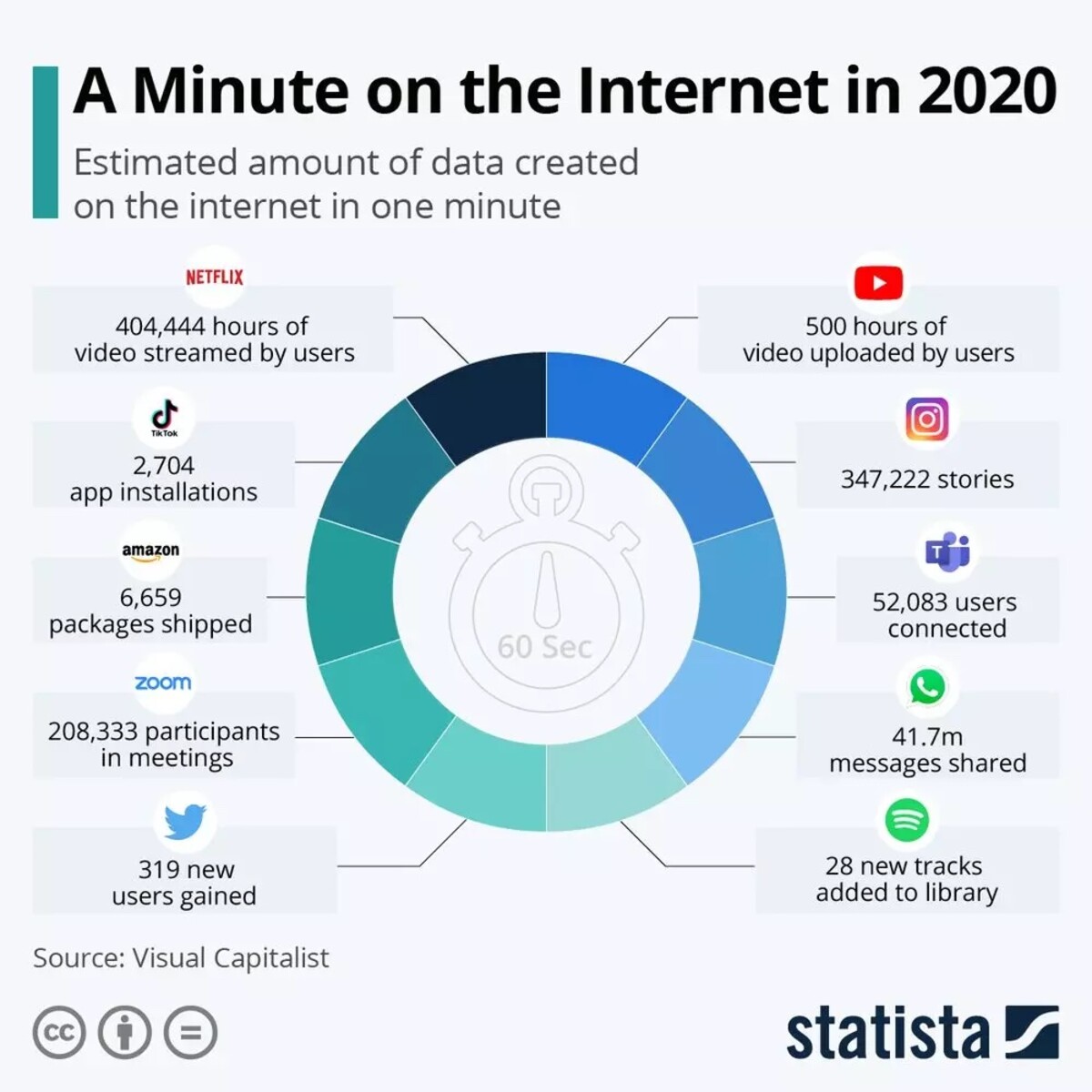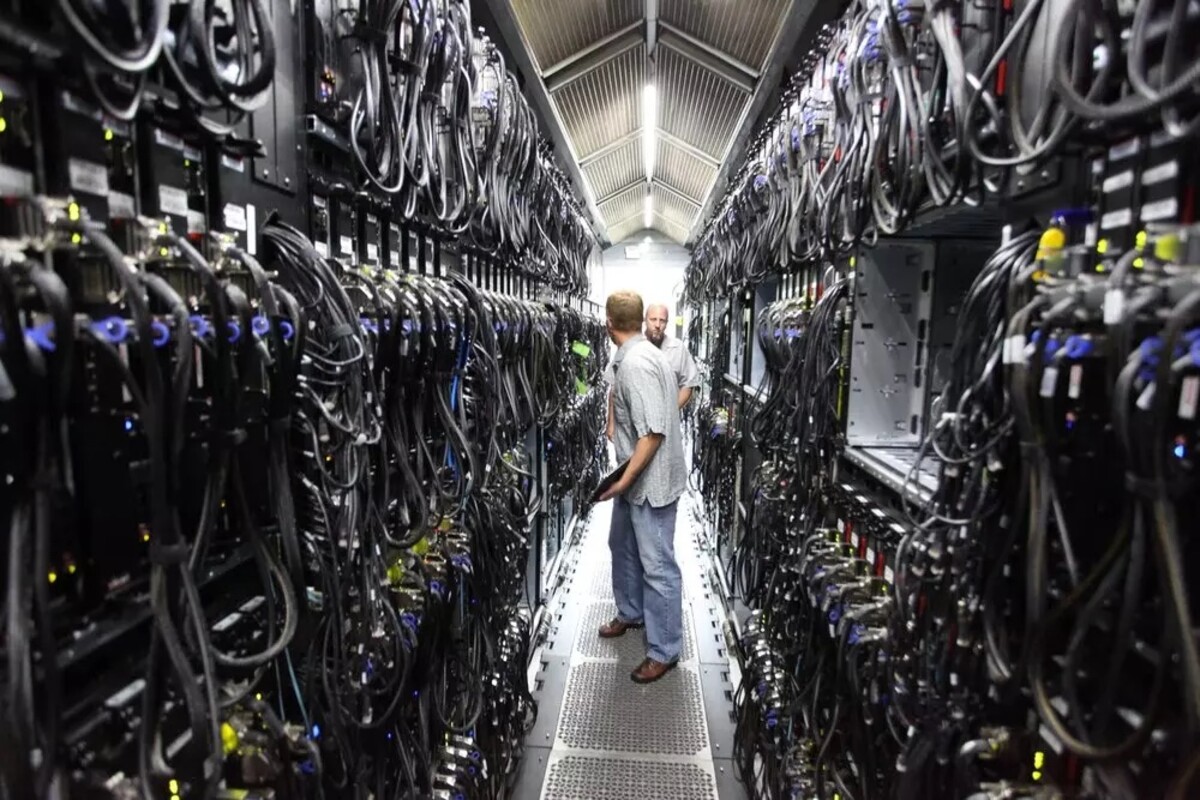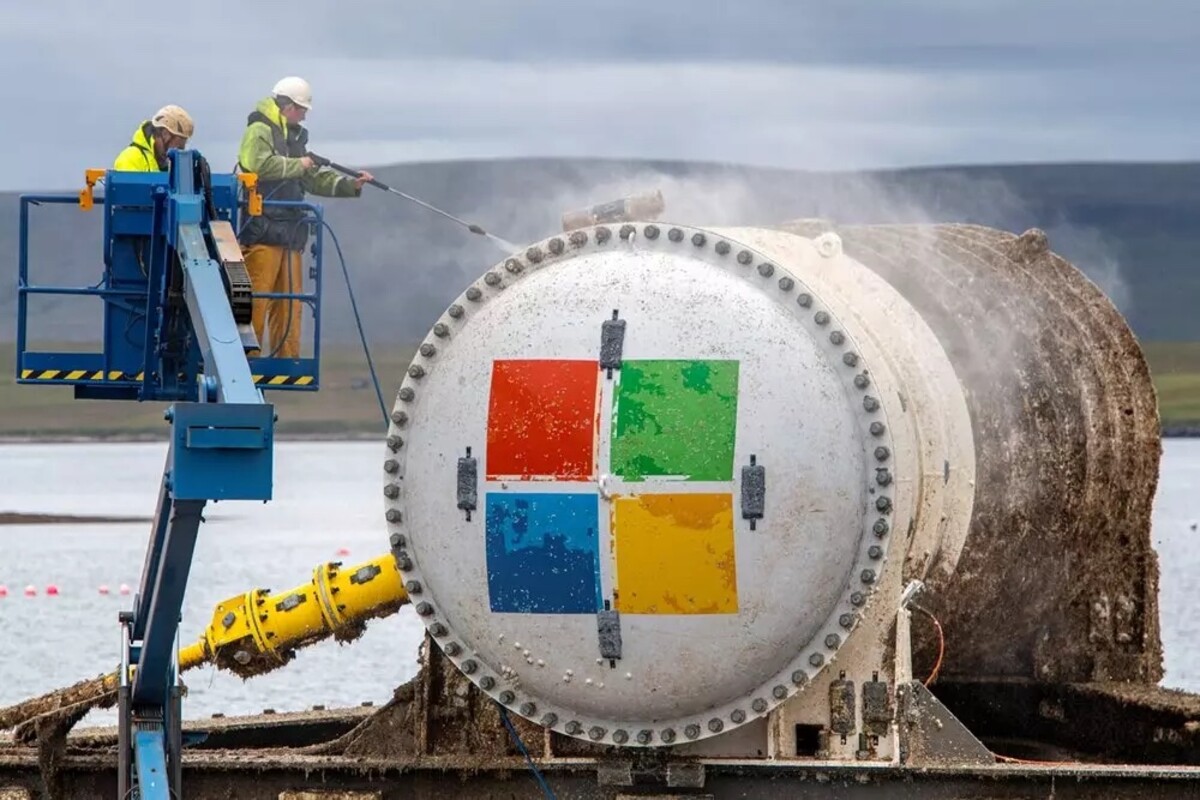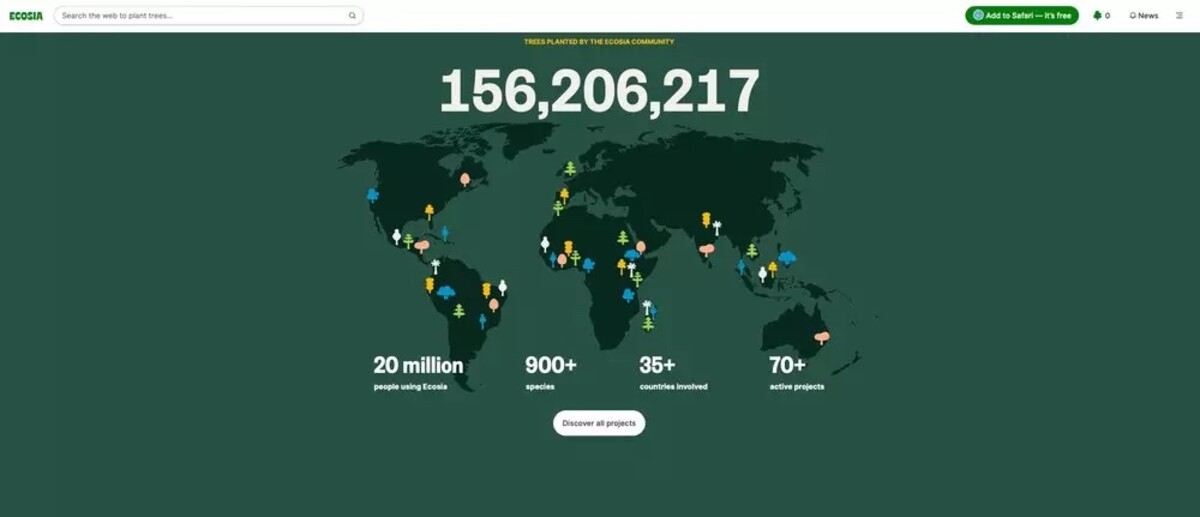 Kingdom Come: Deliverance 2 - the most elaborate RPG in gaming history, but also a frustrating medieval simulator (Review)
Kingdom Come: Deliverance 2 - the most elaborate RPG in gaming history, but also a frustrating medieval simulator (Review)
Kingdom Come: Deliverance 2 - the most elaborate RPG in gaming history, but also a frustrating medieval simulator (Review)
Kingdom Come: Deliverance 2 - the most elaborate RPG in gaming history, but also a frustrating medieval simulator (Review)
Emails Are Destroying The Planet. What Are The Ecological Impacts Of Our Online Behaviour And How Can We Mitigate Them?
We offer you tips on how to reduce your carbon footprint on the Internet.
If problems persis, please contact administrator.

We are becoming more and more aware that the choice of food, clothing or vacation destination leaves behind an ecological footprint. However, our activity on the Internet is no exception, however paradoxical it may sound.
During the coronavirus pandemic, we all transferred a huge part of our work and personal lives to the virtual network. If the Internet were a country today, it would even be among the top five biggest polluters in the ranking of world energy consumption. According to Cleanfox, our internet activity is responsible for up to 2% of the world's carbon dioxide (CO2) emissions.

According to the consulting group Communications Chambers, in 2011, the average household used 17 GB of data per month on the Internet. In 2021, it was already 429 GB. Up to 80% of all data received on the Internet comes from less than 10 websites such as Facebook, Youtube, Netflix or Activision Blizzard.
The Bermuda Triangle of the Internet
Energy consumption takes place on the Internet simply on three levels. First: the user watches, listens, reads, creates and stores content on their device. Second: data centers process this content, store it and send it to users in the form of data.

And finally, thirdly: despite the strong feeling of immateriality, users are connected to the Internet thanks to physical infrastructure: antennas, cables and, last but not least, routers and end devices.
Datacentres
The idea of "cloud" evokes immateriality. However, each activity actually relies on millions of physical servers in data centers around the world, connected by thousands of kilometers of (even) submarine cables.

All the activity on the Internet is managed by huge data centers that need energy to run and cool. In 2021, there were more than 8,000 data centers in the world, the most, up to 2,600 of them, are in the USA. The volume of data stored worldwide doubles every two years thanks to the increase in memory capacity.
The biggest profit from companies operating data centers is Amazon, which manages the data of Netflix, Disney, Tinder and the CIA thanks to its AWS (Amazon Web Services) division. AWS was created in 2003, and renting data centers to manage corporate clouds today earns Amazon up to 60% of all profits, or more than 50 billion dollars per year.
At the same time, data centers have a huge energy consumption associated with the necessity of constant cooling, which consumes up to one fifth of the necessary electrical energy. A remarkable answer to the energy demand of cooling is being investigated by Microsoft, which is testing the possibility of maintenance-free data centers at the bottom of the sea.

The Natick project, in which underwater data centers will rely on the supply of electricity from wind power plants, is also up to 8 times more reliable than conventional data centers, according to Microsoft.
Drops in the ocean or what can you do?
Each of us has an impact on the amount of processed and stored data. See food for thought and practical advice on how to reduce the ecological footprint of your surfing.
E-mails
You too probably have tens, hundreds or perhaps over thousands of unread messages in your e-mail box. Know that there is "sleeping pollution" associated with the e-mail box. All the stored messages put high demands on data centers.
Hundreds more unsolicited e-mails are also accumulating on your five-year-old account pusinka17@azet.sk. It's time to clean up, log out of unwanted news filters and delete old forgotten messages. According to Statista.com, more than half of all email messages are spam.

The carbon cost of an email with a 1 MB attachment is 19 grams of CO2, according to the French agency for the ecological transition ADEME. That's not much, you say. However, if we take into account all the e-mails sent in the world, in just one hour we arrive at the figure of 12 billion e-mails, which produce emissions comparable to burning more than 4,000 tons of fossil fuels.
If you don't want to unsubscribe from unsolicited mailing lists manually, you can use the Cleanfox application. After a simple synchronization, it scans and cleans all addresses in the address book in detail, even if it takes a bit of time. During the several-hour scanning, you can continue to use your mailbox.
According to Euronews, we should also consider whether all the requested e-mails are really necessary. "If every British adult didn't send even one thank-you email, we'd save more than 16,000 tonnes of CO2 a year - the equivalent of 81,000 flights from London to Madrid."
Streaming
For several years now, we have devoted a huge part of our free time to watching movies, series or sports events via streaming. Although our choice of streaming platforms will probably always primarily depend on their offer, our taste and wallet, even in this case we have room to maneuver.

Each platform offers its content thanks to the rental of data center capacity. They may or may not be environmentally friendly. In earlier research from 2017, the international non-governmental organization Greenpeace looked at the ecological impact of platforms.
In its comparison of ecological impacts, YouTube surpassed the most popular Netflix in our country. According to Greenpeace, Netflix uses AWS data centers, while Youtube relies on the "greener" ones from Google.
According to the Carbon Trust, one hour of watching content on Netflix emits roughly 55 grams of CO2 equivalent, which is about as much as your car during a 300-meter drive. According to The Guardian, viewers during the first month of watching the platform's 10 most popular shows produced 6 billion hours of streaming emissions comparable to the distance traveled by a car of 1.8 billion kilometers.

Following the example of Microsoft, Apple or Facebook, Netflix plans to be carbon neutral soon. He would like to do it by the end of 2022. However, Dom Robinson from the ecological initiative Greening of Streaming fears that digital companies will achieve the proclaimed neutrality more through accounting creativity than through real green innovations in the field of energy saving.
And finally, one more suggestion. You yourself certainly know the frustrating struggle with slow internet, after which you are often forced to lower your demands on video quality. But is the pursuit of the cleanest possible, but more energy-demanding display in 4K or 8K quality really worth it? Won't you enjoy quality content even in lower quality?
Games and music
Games accounted for "only" 7% of global internet requests in 2020. However, the mass transfer of players to streaming technology is gradually increasing the ecological footprint of the video game industry. According to Earth.org, online game players use up to 156% more energy than offline players.
According to the United Nations, 2.6 billion people play video games worldwide, and the gaming industry generates 116 billion euros a year, more than Hollywood, Bollywood and music sales combined. According to DW, downloading a copy of a game has a lower CO2 footprint compared to a physical carrier only if it is less than 1.3 GB in size, which is rare for modern games.
In 2020 alone, Spotify excluded 70,000 tons of CO2 equivalent as a result of its cloud streaming claim. To reduce the quality of playback of songs on streaming platforms is, similarly to videos, an unacceptable step for many. However, platforms such as Spotify, Deezer, Amazon or Apple Music offer the possibility to download favorite albums, playlists or songs as part of the subscription. You should use it.

According to Rolling Stone, both downloading and streaming audio content consume the same amount of electricity. Therefore, the more music you listen to from your device's memory, the better. In addition, listening from the internal storage of the mobile has twice as little demand on its battery.
If every user downloaded all the audio tracks, CO2 emissions would be reduced by up to 80% after the first listen. Paradoxically, the most ecological option may be to own a CD carrier. However, it only applies if you listen to it at least 27 times.
Google vs. Ecosia
Each of our Google searches consumes 5 to 7 grams of CO2, which is not much at all. But when we multiply that by the 3.5 billion daily searches, we arrive at 40% of all internet pollution. You can view the approximate energy consumption of Google searches in real time on the CO2GLE website.
Google defends its ecological footprint by building more efficient data centers, investing in clean energy and even declaring carbon neutrality since 2007. It wants to rely on purely renewable sources from 2030.

If you want to choose a more clearly ecological browser, you can try the Ecosia browser, which rewards every search by planting a tree. For each search, according to Ecosia, you "remove" 1 kilogram of CO2 from the atmosphere. He invests up to 80% of the profit from advertisements in afforestation projects.
The selection of suitable locations, especially in the southern hemisphere, takes place in cooperation with dozens of local non-profit organizations. Ecosia operates only in zones threatened by deforestation, which have lost more than 70% of trees, such as in Madagascar or Burkina Faso. The bad news for potential Ecosia users, however, is that it relies on Microsoft's Bing technology.
Cryptocurrencies
Cryptocurrencies are notorious for their energy gluttony. Cryptocurrency “mining” today accounts for approximately 0.5% of all energy consumption in the world. A single Bitcoin transaction removes the equivalent of 253 kilograms of CO2, which is more than 600,000 times that of a normal Visa payment card transaction.

Greenpeace talks about the possible future with "greener cryptocurrencies". They claim that by simply changing the way transactions are confirmed, it is possible to reduce energy consumption by up to 99%. According to cryptocurrency expert Adam Kraclík, the developers of the ethereum cryptocurrency have adopted a more gentle way of verifying transactions. However, the most popular cryptocurrency bitcoin has not yet decided to rewrite its code.
If problems persis, please contact administrator.












